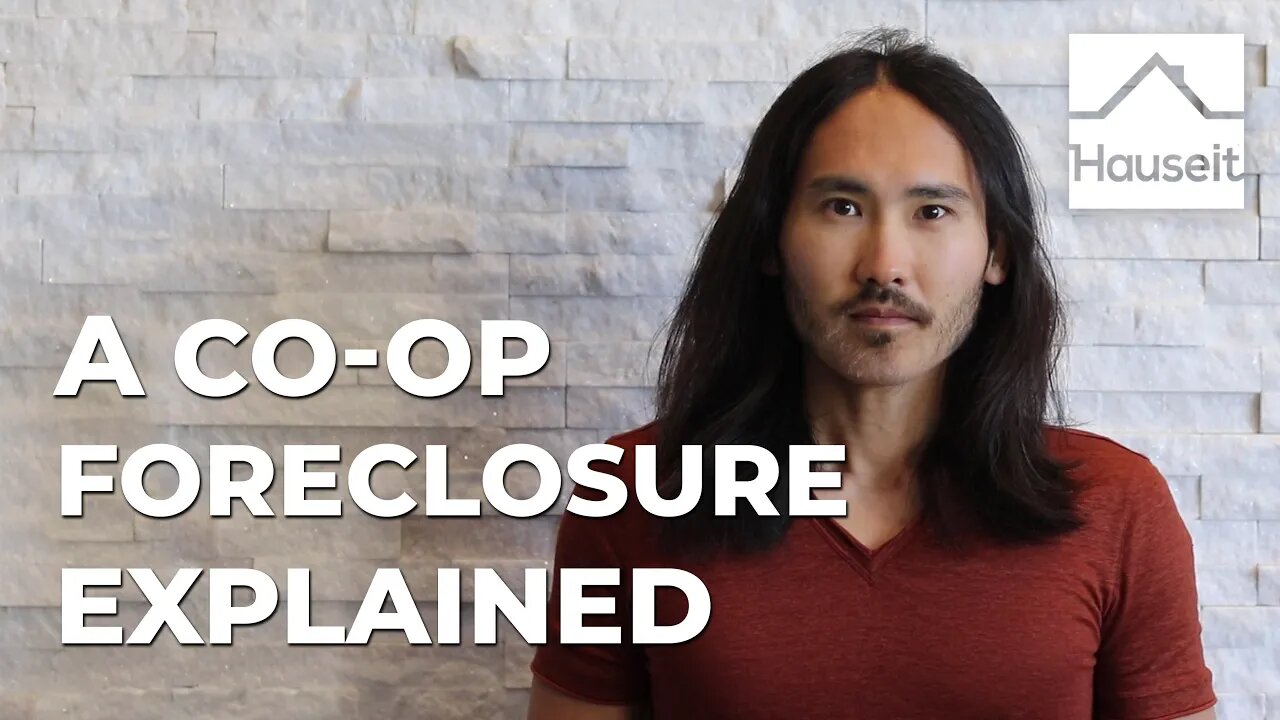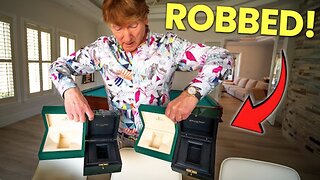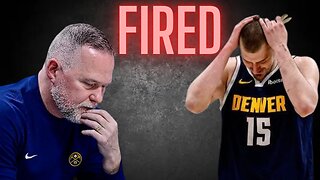Premium Only Content

A Co-op Foreclosure Explained
Save 2% When Buying in NYC: https://www.hauseit.com/hauseit-buyer-closing-credit-nyc/
NYC Buyer Closing Cost Calculator: https://www.hauseit.com/closing-cost-calculator-for-buyer-nyc/
A Coop Foreclosure Explained
A coop foreclosure happens faster than a traditional foreclosure on a condo or a house because court approval is unnecessary. Furthermore, coop board approval is not necessary for a coop foreclosure which can save months of time.
The Collateral for a Coop Mortgage
A coop mortgage is secured by the borrower’s ownership interest in the cooperative corporation, i.e. the borrower’s stock certificate and proprietary lease.
A coop mortgage consists of a promissory note and a cooperative loan security agreement.
The promissory note is essentially a written promise to pay a debt, and the cooperative loan security agreement establishes the stock certificate and the proprietary lease as collateral which will secure the lender’s debt.
After a coop mortgage is finalized, the bank will file a UCC Financing Statement and take the physical coop stock certificate and proprietary lease as collateral until the debt is cleared.
Remember that coop apartments aren’t considered to be real property, and thus a coop mortgage is not technically a mortgage since mortgages are only for real property such as condos and houses.
As a result, banks have to rely on the Uniform Commercial Code (UCC) to be able to extend secured loans on co-op apartments.
Pro Tip: Filing for bankruptcy can delay, but can’t stop a foreclosure. This is why title companies will run a bankruptcy search the day before a foreclosure auction. If real property is involved, the bank will have to file a lift-stay motion. Even for a coop, you’ll have to do the process again. However, you’ve bought yourself some more time to do a short sale. The downside is, you’re bankrupt!
Coop Foreclosure Process
The coop foreclosure process is much faster than the foreclosure process for condos, houses and other real property because lenders do not need to go to court for a judgement to be able to seize and sell the property.
Since a loan on a co-op apartment is not technically a mortgage, a bank can conduct a foreclosure sale under Article 9 of the Uniform Commercial Code without needing a judge’s approval. This is great for lenders because they can maximize their recovery by avoiding a costly and lengthy judicial foreclosure sale.
1. Bank Sends Notice of Default
The lender will send an official notice of default typically between five to fifteen days after a borrower has missed a loan payment. Remember that the UCC does not define what a default is, so you’ll have to read the fine print in the loan or security agreement.
2. Borrower’s File Gets Referred to Bank’s Attorney
If the borrower does not cure the default, the borrower’s case will get referred to the bank’s attorney. The bank’s attorney will typically send some additional notices and make some additional demands to the borrower to cure the default.
3. Newspaper Publication of Pending Foreclosure
Assuming the borrower still has not cured the default, the bank’s attorney will publish a notice of the pending foreclosure for the co-op apartment in a local newspaper for three successive weeks. Foreclosure attorneys have told us that it doesn’t matter which newspaper is used to fulfill this requirement, and banks’ attorneys will often just choose the cheapest local paper for this publication requirement.
4. Courthouse Auction
If the borrower still hasn’t bothered to reach out to negotiate, pay off the loan, refinance the loan or sell the property perhaps through a short sale, then an auction will be held at the local county courthouse.
5. Property Is Sold or Retained by the Bank
The bank will have a reserve price, commonly known as a “knockdown price,” which is the minimum price that the bank will accept from a bidder. The knockdown price is determined by the bank on a case by case basis, dependent on a number of internal factors. In most situations, the knockdown price will be meaningfully less than the loan amount, let’s say by 10% to 20%.
If a bidder offers even $1 more than the knockdown price, the coop apartment will be sold to that bidder. If however no one bids more than the bank’s reserve price, the bank will take the property onto its books and the home will be classified as a real estate owned (REO) property.
Save 2% When Buying in NYC: https://www.hauseit.com/hauseit-buyer-closing-credit-nyc/
NYC Buyer Closing Cost Calculator: https://www.hauseit.com/closing-cost-calculator-for-buyer-nyc/
.
.
Hauseit LLC, Licensed Real Estate Broker
Tel: (888) 494-8258 | https://www.hauseit.com
_
#hauseit #hauseitnyc
-
 2:39:40
2:39:40
TimcastIRL
6 hours agoTrump To Impose 104% TARIFF On China At Midnight In NUCLEAR BOMB On Global Trade | Timcast IRL
218K101 -
 1:54:27
1:54:27
Glenn Greenwald
8 hours agoAs Tariffs Dominate News, Trump and Netanyahu Make Increasingly Militaristic Threats; Plus: Mixed Supreme Court Ruling on Deportation Powers | SYSTEM UPDATE #435
145K120 -
 1:01:27
1:01:27
Man in America
9 hours agoMAHA Feels Betrayed by RFK Jr.—What's REALLY Happening? w/ Sayer Ji
50K39 -
 1:15:15
1:15:15
Savanah Hernandez
6 hours agoToxic Empathy Is Ruining America
46.2K34 -
 1:39
1:39
Stephen Gardner
9 hours ago🚨BREAKING: Karoline Leavitt MAKES STUNNING announcement about Trump's Assassin!
44.7K19 -
 1:32:10
1:32:10
Joker Effect
5 hours agoRumble is about to get a new genre!! Are you ready to take it on? Time to fight fire with fire!
46.6K1 -
 3:27:44
3:27:44
SilverFox
4 hours ago🔴LIVE - ELDEN RING - ZERO DEATH CHALLENGE - ATTEMPT 5
33.9K -
 17:17
17:17
SantaSurfing
7 hours ago4/8/2025 - Modern Day Wealth Managers! The Rewards of planning and dreaming big!
41.3K16 -
 26:40
26:40
Producer Michael
11 hours agoI WAS ROBBED IN MY NEW HOUSE!
39.7K2 -
 13:00
13:00
SKAP ATTACK
7 hours ago $2.09 earnedMichael Malone FIRED by Nuggets
34.8K1